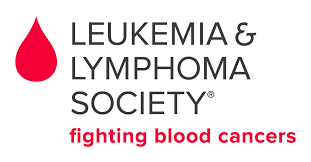Infections
HL affects the immune system's ability to function correctly, making you more vulnerable to contracting certain types of infections. Herpes zoster (shingles), for example, is one viral disease that is often seen in patients as a result of their impaired immune response to the shingles virus.
The potential for infection increases when chemotherapy and radiation therapy treatments are administered. Seeking to establish healthy habits and actively take precautions to avoid infection are important. Talk to your doctor about receiving vaccinations, such as vaccinations for the flu and pneumonia.
Suppressed Blood Cell Formation
Your blood cell counts may fall if you've been treated with chemotherapy. If your blood counts are low, you might need blood transfusions. If your white blood cell counts decreases by a large number and for a long time, you could develop one or more infections and will need antibiotic treatment. Your doctor may decide to change your chemotherapy doses or the amount of time between each chemotherapy cycle so that your blood counts can replenish after treatment. Sometimes you may be given drugs known as granulocyte-colony stimulating factors.
Infertility
Men, women, and children who are treated with chemotherapy for HL are at risk for issues impacting their ability to conceive a child. Treatment can make patients less fertile; the degree to which fertility is affected depends on the kind of chemotherapy drugs used and your age. If you're a male of child-bearing age, you may want to think about the possibility of sperm banking before treatment. If you're a female, you should discuss your options with your physician. Some women experience ovarian failure following their treatment, putting them into early onset menopause. If your fertility is not affected by the treatment you receive, you and your partner have the same chance of having a healthy baby as other couples in the general population.
Other Treatment Side Effects
Chemotherapy drugs are the primary cause of unwanted side effects. While these drugs kill cancer cells, they also damage normal cells. The lining of the mouth, throat, stomach and intestines are particularly vulnerable to damage.
The side effects that you may experience depend on:
- The intensity of your chemotherapy
- The type of drugs used during therapy
- The location of your radiation therapy
- Your age
- Your overall health and the presence of other chronic health conditions such as diabetes or kidney disease
To learn more, visit www.lls.org.
 Content provided by:
Content provided by: